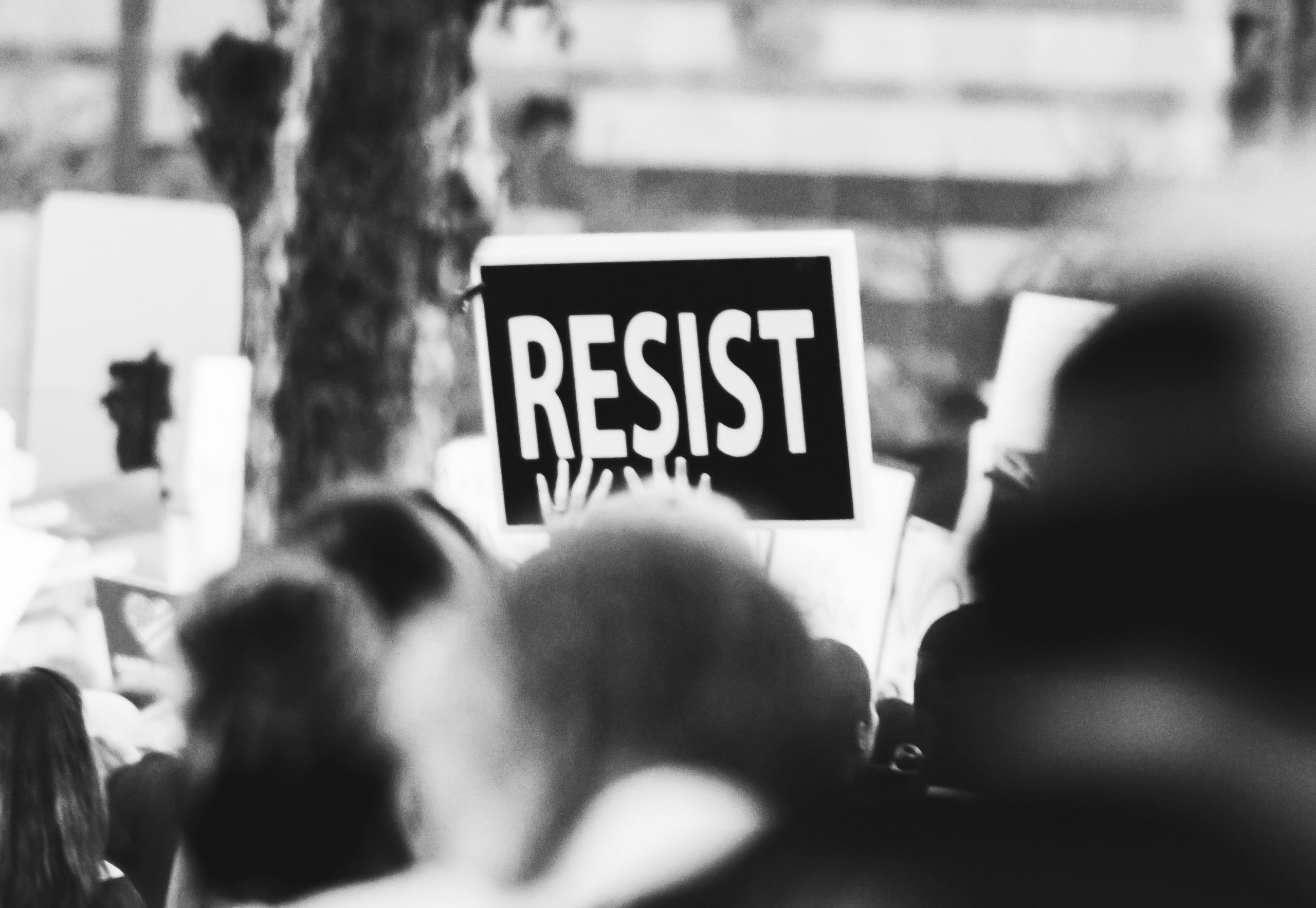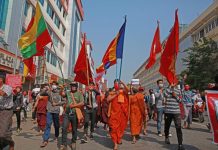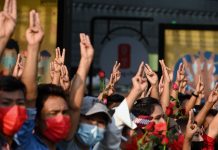
The impact of protests on Thailand's economy, which suffered from the pandemic, will be a "double whammy" according to analysts.
The protesters will not leave until they have a “new” Thailand, according to Thitinan Pongsudhirak, a professor at Chulalongkorn University.
Young Thais are holding anti-monarchy protests in Thailand after King Maha Vajiralongkorn returned from overseas for several royal duties.
Prior to their scuffle with police, the demonstrators partially blocked the road near the monument and set up a barricade. The police then tried to remove this barricade.
When the king’s convoy drove past the protesters for the first time, demonstrators chanted “release our friends” and held up the three-finger salute from the Hunger Games movies — a popular symbol of the protests.
According to the deputy police spokesman, Police Colonel Kissana Phathanacharoen, the protesters were arrested for conducting a protest without permission and detained for violating the “Public Assembly Act.”
“The rise in Thailand’s political temperature following the announcement of a state of emergency in Bangkok will deal a big blow to an economy already reeling under the impact of the pandemic,” Lavanya Venkateswaran, market economist at Mizuho Bank, wrote in a note.
Mizuho Bank reduced its 2020 GDP growth prediction for the Southeast Asian country from -6.3% to -7.5%.
“This time the social unrest brought on by decades of deep political division has been exacerbated by the COVID-19 pandemic,” Venkateswaran said. He explained that the areas affected by the political chaos are also the same ones damaged by the pandemic. This involves weaker private spending on investment and consumption and lower tourist arrivals.
Political instability
Meanwhile, veteran investor Mark Mobius told CNBC about the gravity of how the protests will affect Thailand's economy. “It is a serious situation, no question about it, mainly because tourism is so important for Thailand and if you have unrest, tourism does not come in and you got a real problem," he said.
The state of emergency will lead to political instability and will become a “double whammy” to growth this year and in the medium term, Venkateswaran said.
Thailand has already banned gatherings of five or more people as well as messages that threaten national security as street protests escalate.
“It is extremely necessary to introduce an urgent measure to end this situation effectively and promptly to maintain peace and order,” state television announced.
The Thai government issued a document specifying the rules that took effect from 4 AM local time (2100 GMT) to prohibit big gatherings and allow authorities to ban people from going to areas of concern.
As Thailand bans gatherings, the government also prohibits: “publication of news, other media, and electronic information that contains messages that could create fear or intentionally distort information, creating misunderstanding that will affect national security or peace and order.”
Chulalongkorn University’s Pongsudhirak described the situation as "untenable." “We haven’t seen these kinds of protesters before, they’re out on the streets … in defiance, determination, in the face of emergency decrees.”
“They look very determined to me, they’re not going to go away until they see a new kind of Thailand,” he said during an interview on CNBC’s “Street Signs.”
He pointed out that the economy has “come to a standstill,” with the Thai authorities having been “lackluster” and not properly managing the economy.






